M.Yu. Lermontov - in a red shirt on a white horse ...
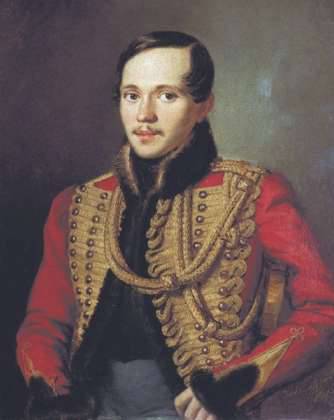
Portrait of M. Yu. Lermontov, dressed in the mentik of the cornet of the Life Guards of the Hussar Regiment. Artist P.E. Zabolotsky. 1837 year.
As for the comrades, they knew Lermontov as a desperately brave officer. And fate pushed him with the Caucasus twice. For the first time in 1837, when he was sent into exile for his poem “The Death of a Poet”, because he allowed himself to too clearly identify those responsible for the death of Pushkin. But he stayed there for long. Soon, by the highest decree, he was transferred from the Caucasus to the Life Guards Grodno Hussars, which was quartered in the Nizhny Novgorod province. And then the grandmother asked for him, and ... the poet was able to return to Tsarskoye Selo! The duel with Baron de Barant was the cause of his second exile. In the court decision on his case, it was said: “to keep in the guardhouse for three months, then deprive officials and nobility and banish them to the Caucasus”. Nikolai mitigated the punishment: send the same rank in the Tengin infantry regiment. Immediately.
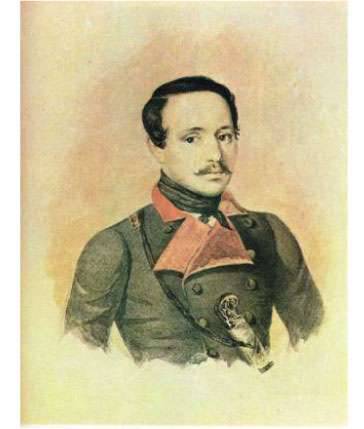
Portrait of M. Yu. Lermontov in the coat of the Tenginsky infantry regiment. Watercolor brush artist K.A. Gorbunova. 1841 year.
And April 13 MS Lermontov left the capital. I must say that in Soviet times, all this was interpreted unequivocally: the progressive poet fell victim to royal tyranny. But was this true, if you look closely, and were there any cases similar to Lermontov? It turns out there were! So, the young prince Golitsyn, being at a feast and having drunk considerably, in the twilight of the dressing room had the imprudence to wear not his uniform, which had not silver sewing, but gold, and in addition with an order cross, which he himself did not have. In this form, he went along the Nevsky Prospect, met the regiment of the chief of the Grand Duke, and ... he noticed everything at once, ordered him to be arrested immediately, put in Petropavlovka and tried! “Yes, how dare you make a comedy from the honor of a military, a uniform without the right to take a cross to wear, not appropriated to you ?!” the judges asked him, and the prince answered: “He was drunk!” The sentence was similar to the punishment of Lermontov - sent to the Caucasus . So it turns out that the king was not so cruel and did, if we compare these two faults.
"Highlander" - sculpture by EA Lancere.
Once in Stavropol, the poet got into the detachment of General Galafeyev - on the left flank of the Terek Line, in Chechnya. Initially, Lermontov served as adjutant to the general. At the same time, he showed courage, behaved coolly, was executive and knew how to instantly assess the situation and make the right decision - all these qualities of the lieutenant Galafeev noted, and here he later wrote about him: “This officer, in spite of any dangers, performed the assigned with him an errand with excellent courage and composure, and with the first ranks of the bravest soldiers broke into the enemy’s debris. "
"Linear Cossack with a Cossack" - sculpture by E.A. Lancere.
Shortly after arriving in the Caucasus, Lermontov participates in his first battle on the Valerik stream. The battle did not seem terrible to the poet, he was ready at any moment to rush to the attack and do his duty. But in this slaughter, he saw senselessness:
But forever proud and calm,
Mountains stretched and Kazbek
Glittered head pointed.
And with sadness and secret heart, I thought: a pathetic man.
What does he want ... the sky is clear
Under the sky is a lot of space for everyone
But incessantly and in vain
One he is hostile - why?
Lermontov later wrote about this battle: “We have 30 officers departed to the 300 privates, and their 600 bodies remained in place - it seems good! “Imagine that in the ravine, where it was fun, an hour after the work it smelled of blood.” Today we would not call the “200th” fun “cargo” from 600. But ... let's make a discount on time. Time it was ... so!
General K. Mamantsev, a participant in this battle, recalled how Lermontov, riding a white horse, rushed forward, disappeared behind the rubble, so they even thought that he was killed. But from the enemy's bullets his fate kept!
A house in Pyatigorsk, where M.Yu. lived for the last two months. Lermontov.
However, the memories of friends and eyewitnesses are far from always reliable historical source - they are very subjective. It is much more interesting to read, say, the conduit lists of regiments of the Russian army that their commanders wrote personally. There subjectivity is much less, because they really could have asked for distortion! And now, for example, as M.Yu. Lermontov was certified during his officer service in the hussar regiment. In service, he is “zealous,” the abilities of the mind are “good,” in morality he is “good,” and in the household he is also “good.” Similarly, he was certified in the Nizhny Novgorod Dragoon and Tenginsky Infantry, but the abilities of the mind were recognized as "perfectly good." And this information was secret and went "up", so there were no special posts to do here. You could run into a check.
Marching folding bed of the poet and the table at which he wrote.
Interestingly, other officers were evaluated very harshly. For example, the lieutenant Count Alopeus was certified as follows: in morality - "inconstant", but Lieutenant Lilye was decent in morality, but wasted on the farm!
Decisiveness, courage, courage and fortitude of Lermontov were also noted in the conduit notes and ... they made him the commander of the cavalry volunteer detachment (Cossack hundred), which was also called the flying detachment. “I inherited from Dorokhov, who was wounded, a selective team of hunters consisting of one hundred Cossacks, a different rabble, volunteers, Tatars and others, it is something like a partisan detachment,” the poet wrote, “if I happen to act successfully with him, then maybe something will give.
Then it became obvious that in the conditions of the partisan war, the mountaineers have a clear advantage over the regular army. Then volunteer detachments appeared in the Caucasus (as they said, “hunters”), who took upon themselves reconnaissance and, often, sabotage and punitive functions. The command of such a “detachment of daredevils” that went through many battles and looked at war and robbery as a means of enrichment, and in October 1840, the great Russian poet took. Beginners went through something like a dedication. He wanted to do something like an exam: the applicant was given some difficult task and he did it. Then, as a reward for this, he was shaved his head, ordered to wear a beard, dressed in a Circassian costume, and as weapons were given a double barrel with a bayonet. At the same time, they were not interested in either the nationality or the religion of the “hunter”: in the detachment of Lermontov, besides the Cossacks and Russian volunteers, there were many highlanders. According to eyewitnesses, Lermontov gathered a real gang of "dirty thugs." Not recognizing firearms, they flew into enemy auls, fought a very real guerrilla war and were called by a big name - “Lermontovsky detachment”.
People at all times loved beautiful things and comfort. Pay attention to the candlestick with a mirror-reflector and the ability to adjust the position of the candle.
To his new centurion, his associates initially reacted with suspicion and even with a share of neglect. But the first impression quickly changed. It turned out that the lieutenant had those fighting qualities that were highly valued by the Cossacks. Mikhail Yuryevich was a great rider, a well-aimed shooter, and he mastered cold arms. And did not distinguish himself among other fighters. "He sleeps on the ground, eats with a gang from a common cauldron .... Before attacking, takes off his frock coat, rushes ahead of the lava on a white horse in a red Cossack shirt ..."
His superiors also favored him, and that was why! In the battles, because everything is in sight! "It was impossible to make the choice more successfully: everywhere the lieutenant Lermontov, everywhere the first was subjected to shots of predators and in all matters he committed self-sacrifice and stewardship, above all praise." Since the end of September, Lermontov has taken part in another expedition to Chechnya. October 4, in view of the burning village of Shali, Shamil himself tried to raise the Chechens to the counterattack, but, having fallen under the aimed fire of Russian artillery, "was showered with earth from the shot and immediately retracted back with its murids." In that battle, by the way, he distinguished himself, commanding the Cossacks, the captain Martynov — the future murderer of Lermontov. “Always the first on a horse and the last on vacation,” wrote Colonel Prince V.S. about the poet. Golitsin, one of the commanders of the Caucasian line.
All the above confirms the words of K. Mamatsev: “I remember Lermontov well and, as now, I see him in front of me, sometimes in a red Canaus shirt, then in an officer's coat without an epaulette, with a collar thrown back and a Circassian cap thrown over his shoulder, paint it on portraits. He was of medium height, with a dark or tan face and big brown eyes. It was difficult to comprehend his nature. In the circle of his comrades, the Guards officers who participated in the expedition with him, he was always cheerful, liked to wit, but his acuteness often turned into petty and evil sarcasms and did not deliver much pleasure to those to whom they were directed ...
And this is the interior of the disgraced poet's room in the same house under a reed roof!
He was desperately brave, he surprised even the old Caucasian dzhigits with his boldness, but this was not his vocation, and he wore a military uniform only because then all the youth of the best surnames served in the guard. Even in this campaign, he never obeyed any regime, and his team, like a wandering comet, wandered everywhere, appearing where it pleases. But in battle, she was looking for the most dangerous places ... "
Flint Caucasian rifle in the house of Lermontov.
Tula flint pistol.
Yeah, you can and should say that Lermontov knew the war firsthand. In Valerik, he appeals to all of us, to his contemporaries, to the future generation:
...
In the fun of the world you are funny
Anxiety wild wars;
Your mind you are not used to torment
Heavy thought about the end;
On your young face
Traces of care and sadness
Not find and you are hardly
Near ever seen
How to die. God give you
And do not see: other alarms.
Soon, Mikhail Yuryevich was the first with his fighters to get through the Shali forest, "drawing all the efforts of predators onto himself", and then, several days later, when he was passing through the Goytin forest, the poet with his people managed to track down the enemy, and did not let him go further. October 30 Lermontov also showed himself selflessly, he cut off the enemy’s path from the forest and then destroyed a significant part of his squad.
Of course, all these actions on the article could not remain unmarked, that is, it was presented to the awards.
For example, in September, a petition was sent to St. Petersburg to award all those who distinguished themselves in the battle of Valerik. And among them was M.Yu. Lermontov. In the petition for his award, it was noted that “this officer, in spite of any dangers, carried out the assignment entrusted to him with excellent courage and composure, and with the first ranks of the soldiers broke into the enemy’s rubble. Requested order of sv. Vladimir 4 degree with a bow ".
Somewhat later, for a campaign to Malaya Chechnya, Lermontov again presented the award to the commander of the Separate Caucasian Corps. In addition to these awards, Lermontov could have received a golden saber with the inscription: "For courage", similar to the order of St. George 4 degree. He was also introduced to the Order of St. Stanislav 3 degree ...
However, the king refused all these awards ... And he ordered at the same time "to be sure to be present in the front, not to dare, under any pretext, to move away from the front service with his regiment." Well, that was Tsar Nicholas I. He believed that discipline in the army should stand in the first place, and if an officer is given a cross, then he should be worn on his uniform, and not on a red silk shirt.
Although it can be firmly said that Lermontov, even if he was bypassed with awards, was lucky both in service and in friendship. So, the poet had a chance to meet Yermolov. And it happened quite by accident - his former adjutant passed a letter to him through Lieutenant Lermontov. And the brief meeting of the disgraced general with the disgraced poet was quite enough for Alexei Petrovich in the summer of 1841, when he received the news of Lermontov’s death, said: “You can be allowed to kill any other person, be he nobleman or noble: there will be many of these tomorrow you will wait soon! ”
Well, just a few days before the fateful July 15, the duel and his death, the poet wrote, “I go out alone on the road ...”
Why is it so painful and so difficult?
Waiting for what? Do you regret anything?
I don’t expect anything from life ...
And I'm not sorry for the past at all.
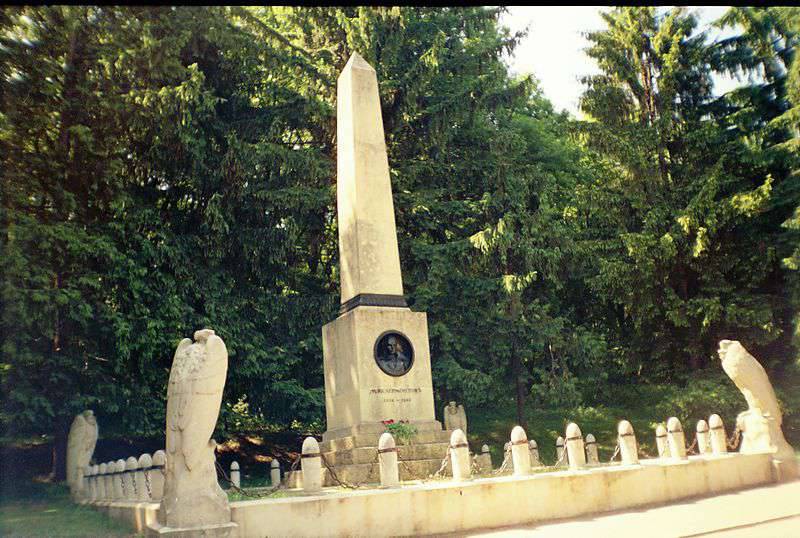
This is how the obelisk looks today at the foot of Mount Mashuk on the site of the duel M. Yu. Lermontov.
Interestingly, some of those officers with whom he was friends, served and fought together, were able to reach the highest ranks and get general shoulder straps. But Lermontov went into eternity, and as a military man remained in it only a lieutenant of the Tengin infantry regiment ...
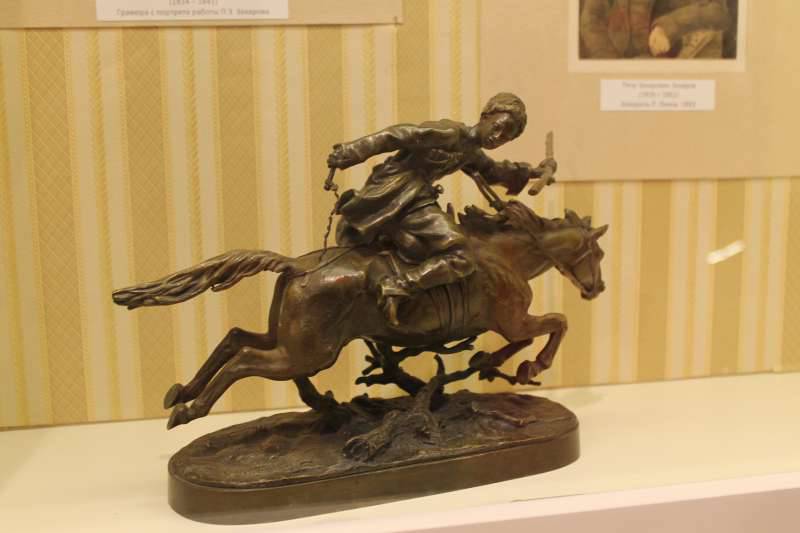
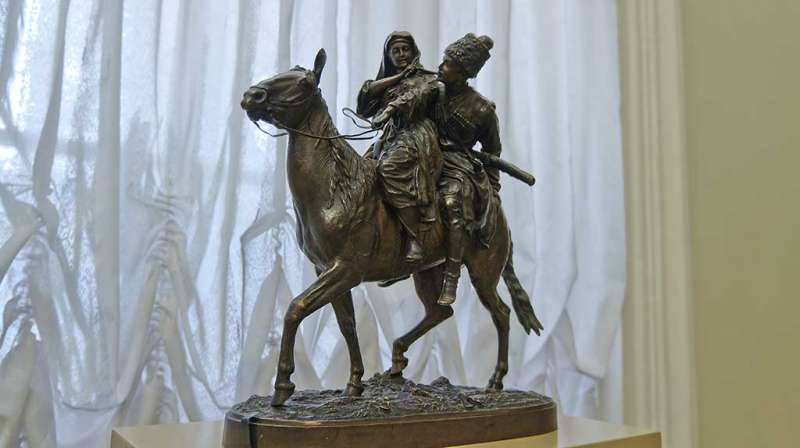
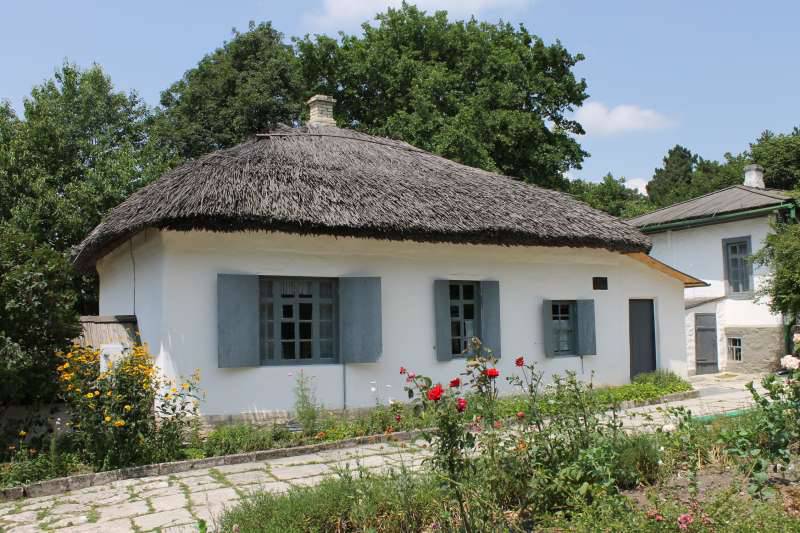
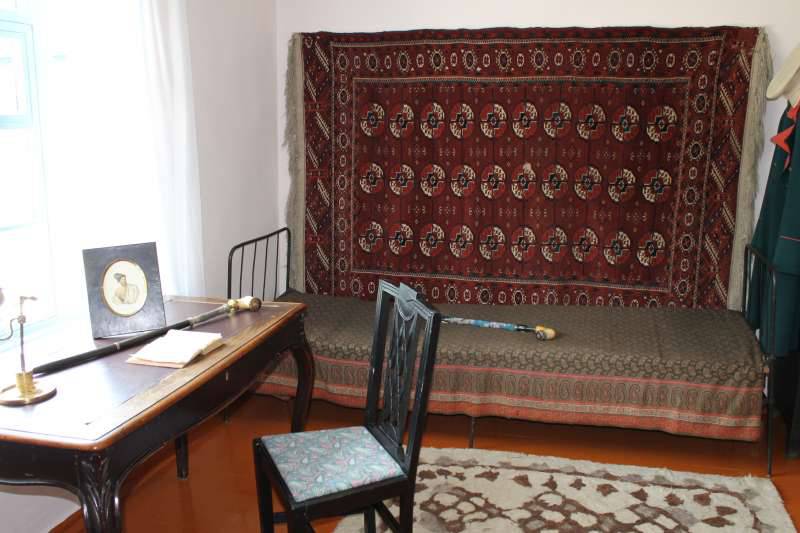
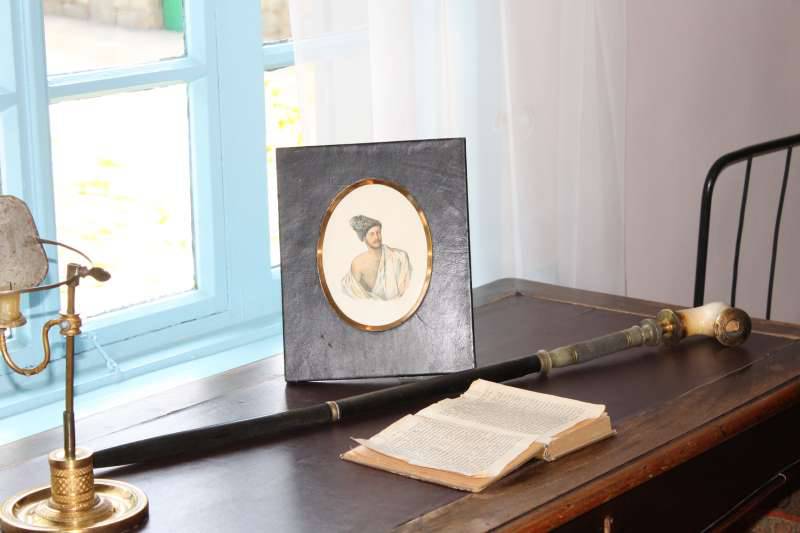
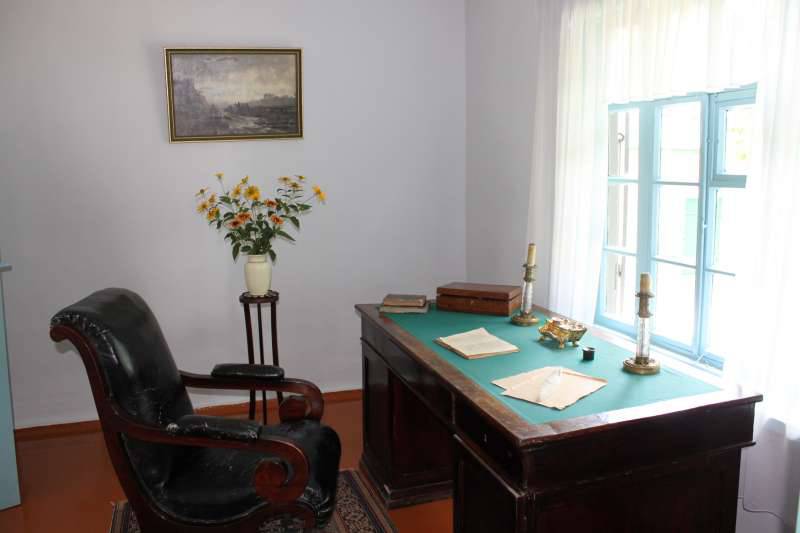
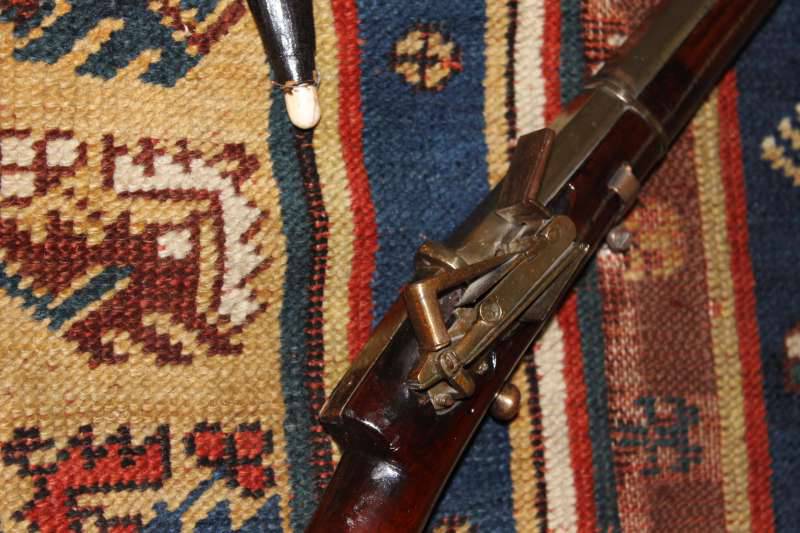

Information